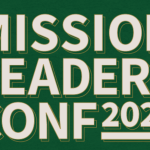![]() We’re especially wondering how workers in secure fields (sensitive places or “creative access” countries) are supposed to interact there. If you’ve been hiding out on another planet over the past 2 years… or otherwise have missed the massive growth of one of the Internet’s most successful ventures, just log on at…
We’re especially wondering how workers in secure fields (sensitive places or “creative access” countries) are supposed to interact there. If you’ve been hiding out on another planet over the past 2 years… or otherwise have missed the massive growth of one of the Internet’s most successful ventures, just log on at…
create an identity/user name, then start poking around to see if you can find “friends.” (In Facebook parlance, a “friend” is someone you trust to interact with your existing friends in a mature and sensitive fashion. Once you “friend” someone, he or she can then see all your friends and try to “friend” them as well.)
So how are you sorting out the sensitive relationships at Facebook? What guidelines, if any, do you give your workers? If you don’t, should you? These and other questions haunt our souls. They deserve an answer. Inquiring minds want to know. :-)
Comment on this item at…












I really would like to use Facebook but am very hessitant because of security reasons. (I work in “sensitive environment” so I need to be quite careful.
I would be grateful to know how other Workers who work in similar situations feel about using Facebook (and Twitter!)
Hi – also interested in hearing how other orgs are handling this. I think most M’s in sensitive areas avoid, but not so sure about MKs. It has become so much part of youth culture now, I hate to block MKs from using it, but they need help in how to do so in a way that won’t create problems for the ministry their family is involved in. Since you can see anyone’s friend list, even if you aren’t that person’s friend, there is certainly a “guilt by association” possibility.
Jim
I prefer not to use Facebook or other similar sites at all. I stick with the “old fashioned” email system of communicating. That means I choose whom I communicate with. I do not trust most info on the internet, so am careful what I write.
The ministry that I work for works in “sensitive environments” as Dave B. puts it and works with college students in those environments. Some ways that we have dealt with this issue as staff are the following:
1. Do not use your last name, our staff that are overseas or travel to our overseas locations, use their middle name, since FaceBook (FB) requires two names.
2. You can set your security settings pretty high if you dig into it, if you don’t know how to do this, ask your teenage son/daughter, for that matter, ask your 6 yr old son/daughter, now days they know a ton about FB. Example of settings; only people you have made your “friends” can see you if they search for you, you can disable the search feature entirely as well and you can make it so that you have to view comments that are made to your wall, before they are actually posted on your wall.
3. We make our students disable their accounts while they are overseas and they are not able to post any pictures with; names/faces of our staff, city names of where they visited, etc.
Those are just a few and we keep adding others as we discover them. The best way still is to not have a FB page/identity at all, but if you have to compromise, there are ways to make it “relatively” safe and secure.
We have written a white paper on FB, and other social networking sites communicating the advantages and disadvantages of using these sites, as well as other articles our staff can use to be as informed as possible when using social networking. The reality is that these sites are not going away, and when used well, can leverage ministry opportunities and partnerships. The key is to be well informed about the options for use (like security settings) and knowing who you are putting in danger and how by posting information on that site.
If anyone would like to see the white paper we have developed, I can share that with you. Contact me at li**********@*****il.com (this is not my work email for security purposes :) ).
I can appreciate the security situations that some who work in sensitive areas can find themselves. I wonder if we couldn’t have private feeds for supporters only? However it’s always possible a supporter might re-share or like something and then it get wider currency. In my own position as a mission researcher and advocate, I use a variety of social networking tools to maximize my contacts, and FB is definitely one of them. So I think the biggest question is how sensitive to security you are!
Here is a helpful site regarding Facebook privacy settings:
http://www.allfacebook.com/2009/02/facebook-privacy/